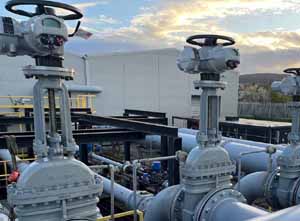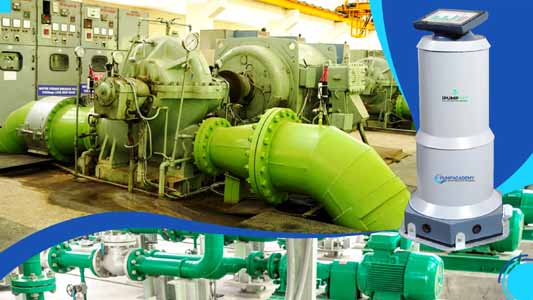Global communities are increasingly demanding governments and organizations to prioritize both planet and people alongside politics and profits. The focus has shifted from pure economic growth to a deeper understanding that long-term success requires balancing financial performance with environmental stewardship and social responsibility to meet global sustainability goals.
Nations and corporations face mounting pressure to fundamentally transform their operations in response to the United Nations 2030 Agenda for Sustainable Development Goals (SDGs). The SDGs serve as comprehensive frameworks that mandate all countries to achieve sustainable development in all three dimensions, that is, economic, social and environmental, simultaneously. These initiatives recognize that climate change, biodiversity loss, and social inequality pose systemic risks that can no longer be ignored. Governments and organizations world over must demonstrate concrete progress across multiple dimensions – from reducing carbon emissions and waste to ensuring clean drinking water, fair labour practices and community engagement.
ESG (Environmental, Social, and Governance) metrics have become critical factors in investment decisions, with major institutional investors demanding robust sustainability adherence and reporting. Companies face growing scrutiny of their water and environmental footprint, leading to widespread adoption of water conservation, emissions targets and circular economy practices. This includes redesigning products for recyclability, minimizing waste throughout supply chains, recycle and reuse of water and transitioning to renewable energy sources.
“With the global drive for improved energy efficiency and sustainability intensifies across industries, pumps remain the unsung heroes at the heart of powering these vital transformations.”
The regulatory landscape across regions continues to evolve setting ambitious targets for water use and carbon neutrality while ensuring a justified transition for affected communities. These initiatives are emerging across developed and developing economies, reflecting global recognition that sustainable development requires coordinated action across public and private sectors.
Success in this new paradigm requires organizations to develop integrated strategies that create shared value – simultaneously delivering business results while addressing environmental and social challenges. This transformation represents both a challenge and an opportunity, as organizations that effectively navigate the transition to sustainability position themselves for long-term resilience and growth.
Organizations around the world are starting to see the shape of a new era of sustainability coming into view. In the face of rising global competition, technological advancement and the serious economic turmoil, corporate commitment to the principles of sustainability remains strong throughout the world. 69% of CEOs view sustainability as a leading business growth opportunity in 2024, according to a survey of CEOs and senior executives conducted by Gartner. Sustainability consistently remains a top 10 business priority, surpassing even productivity and efficiency as the CEOs realize sustainability practices create new areas of business opportunities.
India’s sustainability efforts saw significant advancements in 2024, driven by investments in solar energy and electric vehicle (EV) infrastructure, with crucial focus has emerged on innovation in green hydrogen and nuclear fusion, bringing these transformative technologies into the spotlight as we move forward into 2025. As a country primarily dependent on fossil fuels as the energy source, India will have to make a significant shift in its energy source to achieve the committed net zero target by 2070.
Environmental Sustainability: Driving Business Growth

The impacts of climate change, including global warming and increasing water scarcity have put environmental sustainability as a key driver of business innovation. Companies now face mounting pressure to adopt sustainable practices and reduce operational costs by efficiently managing resources such as water and energy while minimizing waste at every stage. Embracing these measures not only helps businesses meet stringent regulatory requirements but also provides a competitive edge by appealing to environmentally conscious consumers and capturing a growing market share.
Digital technology has the potential to significantly accelerate progress toward sustainability goals, enabling organizations to surpass regulatory compliance, achieve ambitious targets, adopt innovative business models, and unlock new revenue streams. It serves as a key driver of both financial performance and environmental outcomes. Technologies like the Internet of Things (IoT) and advanced data analytics optimize the performance of machinery and systems, leading to cost reductions and lower carbon emissions. The integration of Artificial Intelligence (AI) and IoT enhances operational efficiency and management, delivering the much-needed precision and effectiveness to tackle modern challenges.
Leading organizations worldwide have proven that sustainability initiatives can drive profitability while addressing environmental challenges. Their success underscores the synergy that environmental stewardship and business growth are complementary to each other than competing objectives.
Social Sustainability: Creating Value for Business and Society

Social sustainability is another important aspect for businesses representing a critical dimension of success, focusing on how businesses impact and interact with people both internally and externally. At its core, social sustainability requires organizations to prioritize human wellbeing while pursuing their business objectives.
In the workplace, this manifests through comprehensive policies that ensure fair compensation, safe working conditions, and equal opportunities for professional growth. Organizations must create inclusive environments that value diversity and enable all employees to thrive. This includes implementing flexible work arrangements, mental health support, and career development programs that acknowledge diverse employee needs and aspirations.
Successful organizations actively participate in community development through strategic initiatives and maintain open dialogue with stakeholders, ensuring business decisions consider community impacts and preserve cultural heritage.
iPUMPNET: Revolutionizing Sustainable Pump Operations

Pump Academy Private Limited has emerged as a pioneer in sustainable pumping solutions through its innovative iPUMPNET system. This digital platform optimizes pumping station operations by monitoring real-time performance metrics and environmental parameters. The system leverages advanced analytics to minimize energy consumption, reduce carbon emissions, enhance lifespan and prevent water wastage across pumping installations.
iPUMPNET integrates IoT sensors and artificial intelligence to automatically adjust pump operations based on demand patterns and efficiency metrics. This smart technology has demonstrated significant environmental benefits, including 25% reduction in energy usage. By monitoring pump performance in real-time and analyzing data, it identifies inefficiencies to improve productivity upto 35%, minimize water losses, reducing carbon emission, extending lifespan upto 50% and substantial improvements in water conservation.
A significant advantage of iPUMPNET is its potential to save nearly 5 GW of energy annually if implemented across all water pumping stations in India. This translates to an annual cost saving of INR 250 billion, addressing the crucial need for energy efficiency and resource optimization in the water supply sector.
“Pumps play a vital role in powering industrial processes, climate control, and clean water systems, touching nearly every aspect of daily life. In the face of climate change and growing environmental responsibility, their importance in advancing India’s sustainability goals is unquestionable.”
The platform’s success stems from its comprehensive approach to sustainability, addressing both operational efficiency and environmental impact. Pump Academy’s solution enables organizations to track their environmental performance through detailed analytics dashboards while identifying opportunities for further optimization. Early adopters report both environmental and financial benefits, with reduced operational costs complementing improved ecological outcomes.
Through iPUMPNET, Pump Academy demonstrates how technological innovation can drive environmental sustainability in municipal and industrial operations, setting new standards for responsible water infrastructure management.
Embracing Sustainability for a Better Future
Pump Academy Private Limited has established ambitious sustainability goals for 2025, demonstrating its commitment to environmental stewardship and social responsibility. The company’s comprehensive framework spans multiple dimensions of sustainability, anchored by its innovative technology based solution, iPUMPNET.
On the environmental front, Pump Academy aims to achieve significant reductions in carbon emissions and energy consumption in pumping operations. The company’s water conservation initiatives seek to save substantial amount of water through smart solutions, while implementing pump optimization across water utilities and industries. Innovation remains central to these goals, with plans to further enhance iPUMPNET’s capabilities through advanced integration of digital technology.
The social dimension focuses on building skilled human capital by training and partnering with more educational institutions for skill development. In market impact, Pump Academy aims to help its clients achieve substantial cost reductions while expanding iPUMPNET’s footprint to more utilities and industries. These interconnected goals reflect Pump Academy’s vision of leading the transformation toward sustainable pumping solutions while creating lasting value for all stakeholders.
Brief about the author:
Drawing on his deep industry knowledge, he founded Pump Academy Private Limited to provide innovative solutions to water utilities. His vision is to transform pumping stations into technologically advanced, automated, and responsive entities with robust processes for greater sustainability. Anil Sethi is widely recognized for his nation-building initiatives and has received numerous awards and accolades.












